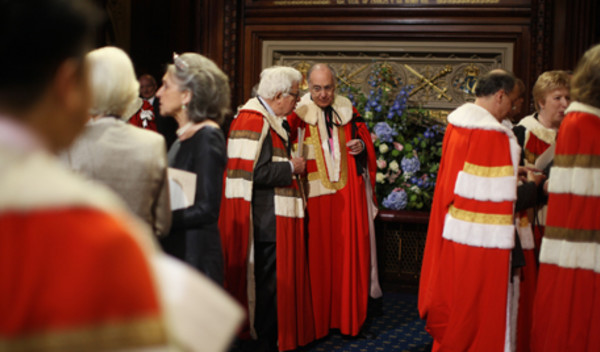

Peers debated amendments to the Pension Schemes Bill in the House of Lords yesterday afternoon (March 3), which lead to the withdrawal of seven clauses while a further 13 amendments were dropped immediately without discussion.
One of the amendments which was withdrawn, brought forward by Lord Young, would have given beneficiaries access to more than one pensions dashboard.
As it stands, under pension dashboard rules savers will be able to see all their pension pots which are held in their name in one place.
But they will not be able to access information about any entitlements they may have if their husband, wife or partner has named them as a beneficiary under another scheme.
Lord Young said: “More and more couples are both at work, and most pension schemes enable a beneficiary to provide for a surviving spouse.
“My amendment would enable a named beneficiary to access a dashboard where they had an interest. Without that information, that beneficiary will not know whether they have made adequate provision for their old age, which is a primary objective of the dashboard.”
The amendment was withdrawn due to issues surrounding data protection.
Earl Howe raised concerns about how the amendment does not distinguish between beneficiaries with entitlements and potential beneficiaries without current entitlements to the scheme.
He said: “Creating provision for a person with a potential entitlement introduces considerable legal and technical challenges about data protection and confidentiality in relation to the principal scheme member.
“The members themselves should have control of the access to such information, and this should happen only with consent. We should be wary of undermining confidence that an individual’s own pensions data will be kept safe, confidential and secure.”
Another amendment called for proper protections for consumers when using the dashboards.
It proposed that the Financial Conduct Authority (FCA) should oversee any dashboards, particularly the commercial ones, as a regulated activity.
Baroness Altmann said this was not “specified in the bill” and clear regulatory protection for any consumers using a dashboard “needs to be on the face of the bill”.
She added it was important the regulator made sure that the information provided on the dashboards was clear and called for a recognised standard for dashboards “so that it cannot be misleading for consumers”.
Baroness Altmann said: “Sometimes providers do not intentionally try to mislead consumers but the language that they use every day is natural vernacular for them, although it does not mean a thing to a consumer.
“A provider might think that they have explained something very clearly for anyone who knows all about pensions but, on reading it, the customer might get totally the wrong idea or not understand what is being presented and perhaps take an incorrect conclusion from it.”
A separate amendment also called for the provider of a pensions dashboard to have a fiduciary duty to the user as concerns were raised there could be the potential for mis-selling using data provided on dashboards.
Earl Howe said while he agreed consumers should be given extra protection, he did not agree with the way it was proposed by the amendment.
He said: “The government are persuaded that a strong regulatory regime is key to maintaining public confidence in dashboards. There are existing powers which we will use to introduce a new regulated activity for dashboard providers.
“This will bring the provision of a qualifying dashboard service within the regulatory and supervisory the remit of the FCA. There is no need for the new dashboard-specific regulated activity to be in the bill.”
He also said consumers will have various modes of redress available to them if they are not served legally or properly by their scheme provider or the dashboard provider.
Therefore both of the amendments were also withdrawn.
The bill is expected to be debated in the Lords again this afternoon.
The bill will then proceed to report stage before having its third reading and being passed to the House of Commons.
It is expected to reach the House of Commons by Easter.
amy.austin@ft.com
What do you think about the issues raised by this story? Email us on fa.letters@ft.com to let us know



